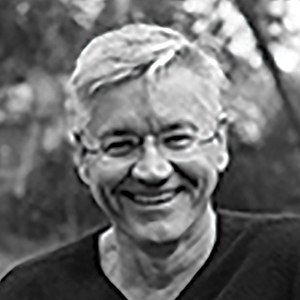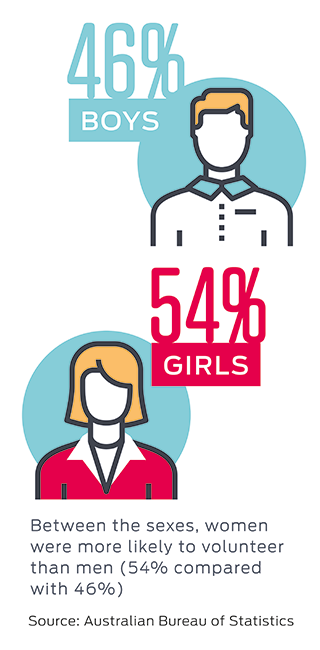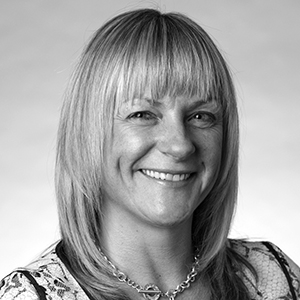Next time you hand over your ticket to a steward at a community event, watch the coach cheer on your child playing junior sport, or brush past a charity coin collector on the street, take a closer look. These are the faces of the nearly six million Australians who give up their time to volunteer each year, and they’re worth more than $16 billion to our national economy.
 And while their work has significant economic value, the social capital they build is crucial. According to University of South Australia researcher Associate Professor Harry Savelsberg, volunteers are the lifeblood of Australia, providing the critical connections that underpin social cohesion.
And while their work has significant economic value, the social capital they build is crucial. According to University of South Australia researcher Associate Professor Harry Savelsberg, volunteers are the lifeblood of Australia, providing the critical connections that underpin social cohesion.
“The economic benefits are in the billions but the social contribution volunteers make is even bigger – the social value cannot be measured,” he says.
“While some cultures rely on extensive family networks in times of need, in Australia we depend heavily on community support. Our welfare system would fall over without volunteers.
“Volunteering embodies the notion of community. It gives people across the country an opportunity for social connectedness that they might not get elsewhere. That connectivity comes from both being a volunteer and from the services volunteers provide.”
According to Assoc Prof Savelsberg, there are many reasons why people volunteer, ranging from young university students looking to gain professional experience to older people wanting to share their knowledge and skills developed over career and life experiences.
“The reasons why people volunteer vary, but regardless of age or background, volunteers are generally motivated by the underlying sense that they can make a difference,” he says.
 Understanding what drives volunteers is key for UniSA Business School researcher Dr Gerry Treuren, who applies human resource management and marketing theory to the area of volunteer recruitment.
Understanding what drives volunteers is key for UniSA Business School researcher Dr Gerry Treuren, who applies human resource management and marketing theory to the area of volunteer recruitment.
While most people make the decision to volunteer based on a feeling that something needs to be done, Dr Treuren’s research reveals there is more to it than that.
“By surveying volunteers at a number of organisations, I have developed motivational profiles of volunteers,” he says.
“My findings reveal three main volunteer profiles: the enthusiasts, who love different aspects of volunteering; the conscripts, who serve with varying degrees of reluctance; and the instrumentalists, who volunteer to obtain some form of material benefit.
“Establishing the motivations behind a person’s choice to volunteer can help organisations – particularly those in the non-for-profit sector who could not exist without volunteers – to recruit and foster their volunteer workforce.”
A life-saving, life-changing, experience
 For UniSA Business Management graduate Ayesha Fernando, several factors influenced her decision to volunteer, including a desire to make new friends, gain professional experience and give back to the community.
For UniSA Business Management graduate Ayesha Fernando, several factors influenced her decision to volunteer, including a desire to make new friends, gain professional experience and give back to the community.
During her time as a student, Fernando undertook a number of voluntary positions, including a leading role in the 2016 Australian Red Cross Blood Service’s blood drive at UniSA, which saw the University community save 4080 lives through 1360 blood donations.
“As an international student new to Australia, I saw volunteering as a great way to meet new people and apply the skills I was learning through my studies but it turned out to be so much more than that,” she says.
“When you volunteer you get an incredible feeling from knowing you are helping someone and making a difference in the world, in the case of the Red Cross blood drive, to volunteer is to literally save people’s lives.
“My volunteering experiences have changed my life. Not only have I gained valuable professional experience and made new friends, but it has also made me change career directions. Witnessing the work the Red Cross staff do – who are so passionate about their cause – has made me want to give back to the community and to forge a career in community services.”
This year Fernando’s contribution was formally acknowledged by the Australian Red Cross, which presented her with an Ambassador Award. The award represents a wider shift taking place in Australia, where volunteering is increasingly recognised as a cornerstone of society.
Assoc Prof Savelsberg, who held leadership positions on the Board of Volunteering South Australia for more than a decade in the 1990s and 2000s, says the formalisation of volunteering is a positive change to the sector.
“The act of volunteering is something that needs to be encouraged, nurtured and invested in,” he says.
“Governments and organisations are introducing a number of initiatives such as providing funding to peak bodies to support volunteers and the creation of formal awards – such as Ayesha’s Ambassador Award – which validate and reward the work volunteers do.”
 This year UniSA launched the UniSA+ program, which supports students to engage with the wider community and undertake extracurricular activities as a formal part of their degree. UniSA Pro Vice Chancellor: Student Engagement and Equity Dr Laura-Anne Bull says volunteering can be an important part of the student experience and UniSA+ is a program that helps facilitate this.
This year UniSA launched the UniSA+ program, which supports students to engage with the wider community and undertake extracurricular activities as a formal part of their degree. UniSA Pro Vice Chancellor: Student Engagement and Equity Dr Laura-Anne Bull says volunteering can be an important part of the student experience and UniSA+ is a program that helps facilitate this.
“UniSA+ acknowledges students who have gone above and beyond during their studies and gives them a way to stand out to potential employers upon graduation,” she says.
“As well as getting a certificate, UniSA+ students will be positioned strongly when engaging with potential employers and will be able to articulate the skills they have developed during their time with us.
“Volunteers play such a crucial role in our society but we also know the act of volunteering can make an enormous contribution to an individual’s professional and personal development.
“We want to connect students with the right organisations to help them learn and grow outside of the classroom. At the same time, the students are giving back to their communities.
“The program is already growing rapidly with 27 partner organisations on board and about 500 students registered to take on volunteer positions.”
In addition to growing infrastructure to support and nurture volunteers, Dr Treuren says changes to society are influencing the shape of volunteering.
“Family structures, for example, have affected who volunteers. Fifty years ago not as many women were in the paid workforce yet they were working, in a voluntary capacity, serving our communities in a huge number of ways,” he says.
“The demographic of the volunteer workforce continues to shift and, just like the paid workforce, will be influenced by factors such as the ageing population and the economic climate.
“Technological advances are also changing the way people volunteer and there has been a rise in e-based volunteering and task-based volunteering rather than long-term commitments.”
While they come from all walks of life and their personal motivations vary, volunteers remain a vital part of our social fabric, supporting us in times of need and providing us with opportunities to engage with our community. Improving our understanding of their motivations and providing the right support and framework for them to continue their work will ensure volunteers keep contributing essential social and economic capital to our society.
Find out more:
unisa.edu.au/volunteering
unisa.edu.au/unisaplus